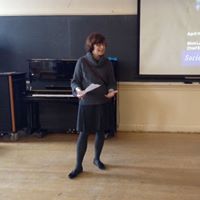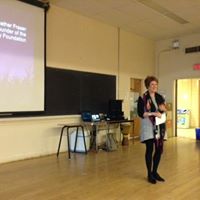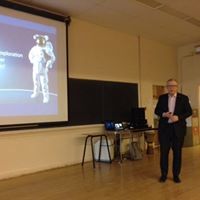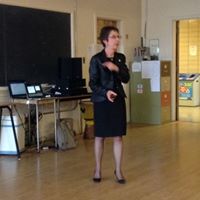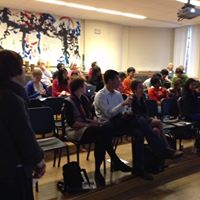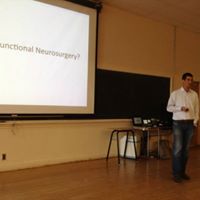On April 10th, 2014, aspiring students of all grades, teachers, and staff of the University of Toronto Schools attended the Alzheimer Society of Canada and Firefly Symposium on the Brain. The symposium, which featured several accomplished guest speakers, focused on the discussion of Alzheimer’s disease, a common form of dementia, innovative methods of treatment for the condition, and inspiring the younger generation to think about the brain.
Guest speaker Mimi Lowi-Young, the chief executive officer of the Alzheimer Society of Canada, introduced the research program of the Alzheimer Society. Ms. Lowi-Young revealed that “more than 700 000 people have this disease in Canada, and the number of people with it will double in 20 years, yet 50% of people delay diagnosis.” Her statement proved its prevalence and that more research on Alzheimer’s is a necessity. The new research program aims to encourage people to see the doctor and fund ideas to be tested. It focuses on two areas of study: the science behind the brain, and how to improve the quality of life for those with the disease.
Dr. Ido Strauss, a neurosurgeon at Toronto Western Hospital, has been testing a novel method of treating neurodegenerative conditions called “deep brain stimulation.” In his lecture, he explained the concept of deep brain stimulation and its effects on Alzheimer’s disease. “Alzheimer’s is the most common neurodegenerative condition,” said Dr. Strauss, “yet there is no way to properly diagnose it. Significant advances have not been made in developing drug treatments for the disease.” Deep brain stimulation, however, may be the treatment that the hundreds of thousands of patients need. It involves placing electrodes on a patient’s brain to activate circuits in the organ. “Positioning electrodes in front of the fornix is shown to improve memory, with beneficial results lasting a year after surgery,” he added. With more testing, Dr. Strauss plans to find out whether this new form of treatment can live up to its expectations.
“Sometimes you discover things you didn’t intend to discover,” remarked Neil Fraser, the president of the company Medtronic. Medtronic is a global leader in medical technology, also using deep brain stimulation to treat movement disorders such as dystonia. The company is working towards creating new engineering approaches, including less invasive technology.
A goal of the Firefly Foundation is to inspire students to take an interest in the brain. “It is important for youth to understand brain health,” said Rosemary Evans, the principal of University of Toronto Schools. “Research for dementia is critical for the baby-boom generation and the future.” “It’s about inspiration and dreams,” the founder of the Firefly Foundation, Heather Fraser, added. “Inspiration starts young, so we need to inspire children to think about the brain in order to extend the life of the brain.” The future looks bright with the University of Toronto Schools’ partnership with the Firefly Foundation, as it brings many new opportunities to the table. This rich relationship will bring about the inspiration and education that the world needs, ultimately resulting in working together towards a greater cure.


